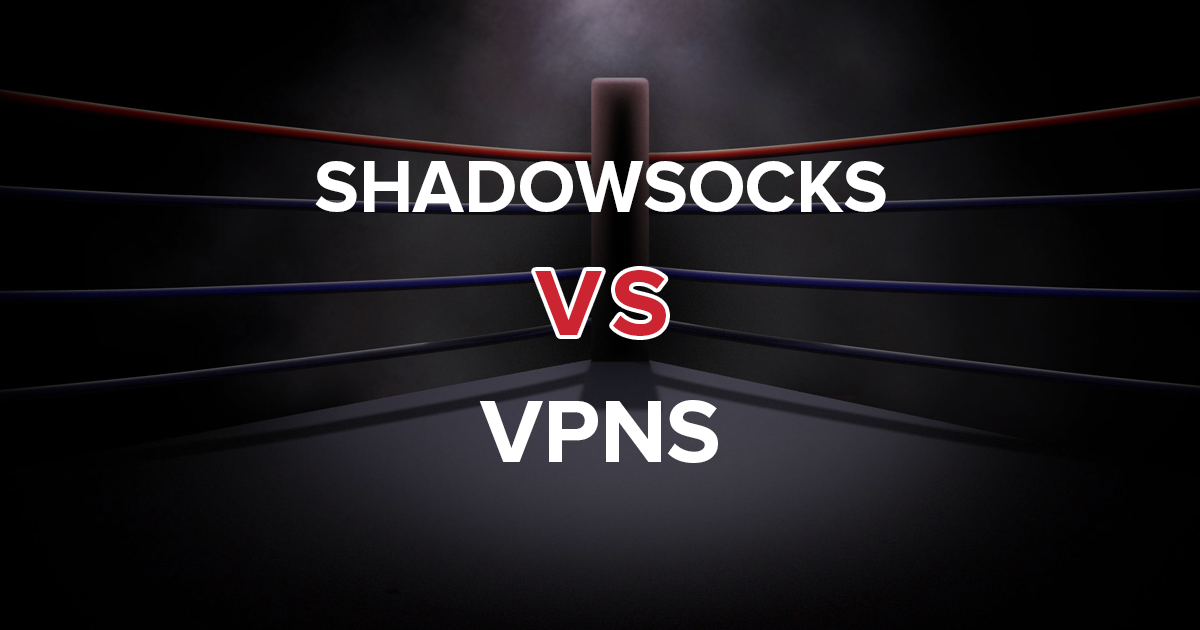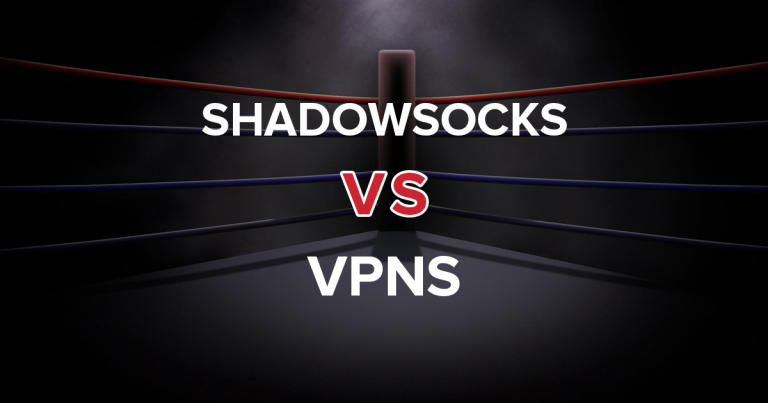
Shadowsocks vs. VPNs — Everything You Need to Know
If you have ever taken interest in the Great Firewall of China, you have probably heard of Shadowsocks. It is often mistaken for a VPN-based technology — but while some of the functions overlap, Shadowsocks and VPNs are two completely different things.
This article will help you understand the different aspects of the two technologies. We will also give you a rundown of each one’s benefits, complete with scenarios where Shadowsocks may be more suitable than a VPN, and vice versa.
What Is Shadowsocks?
An open-source SOCKS5-based proxy project, Shadowsocks is an intermediary that is mainly designed to bypass censorship. It was first released in 2012 by its creator, a Chinese programmer under the pseudonym “clowwindy”.
In 2015, the programmer announced that they were retiring from the project due to pressure from the Chinese police. Since then, Shadowsocks has remained open source, maintained and improved by many collaborators.
How Is Shadowsocks Different from VPN?
There is one major similarity between VPN and Shadowsocks — their ability to connect you to certain websites that are normally off-limits due to government censorship, geoblocks, or otherwise.
Given its original objective of bypassing the Great Firewall of China, Shadowsocks focuses on circumventing traffic restrictions. It utilizes HTTPS, thus disguising traffic so that it can move past the censorship measures in place.
Unlike VPN, Shadowsocks isn’t designed for privacy and anonymity. While both VPN and Shadowsocks encrypt data, Shadowsocks is much more lightweight. VPN uses many layers of military-grade encryption protocols to completely hide the traffic on its servers. Shadowsocks makes data 'blank' to look more like HTTPS traffic, so that it can move around unrestricted. It is not hidden, like on VPN, just disguised.
Due to its use of SOCKS5 proxies, Shadowsocks doesn’t send all your traffic through a server, as opposed to VPN. And in contrast to traditional ssh SOCKS5 proxies, Shadowsocks works with multiple TCP connections. The result is much faster speeds compared to the alternatives.
Benefits of Shadowsocks
The biggest advantage of Shadowsocks is its easy setup. The technology is a simple and capable proxy that doesn’t take long to set up and is perfect for accessing restricted content. Shadowsocks is also completely open source, with contributors making improvements regularly.
Another benefit of Shadowsocks is its selective disguising of traffic. You can choose which part of your traffic is affected by Shadowsocks — this makes it possible to access restricted content both inside and outside of your location.
Take the following scenario for example: you are in China and you want to access Gmail. By using Shadowsocks, you can choose the Gmail traffic to be “camouflaged”, thus bypassing the Chinese government’s block.
Regardless of this, it's possible to access websites that are specifically designed for China. Conversely, employing a VPN means that all data heading to your chosen server is encrypted, leading to the scenario where sites exclusive to China become unreachable on the same device.
Last but not least, Shadowsocks is very difficult — if not impossible — to detect and block. The masking of traffic to make it appear as HTTPS is the main reason for that.
On the other hand, VPN’s modus operandi and its immense popularity have made it easier for governments and platforms to block the technology or force major corporations to remove VPN products from their stores (Apple removing VPN apps from the Chinese App Store is an example).
Understanding the Threat Model
While Shadowsocks is a great technology for bypassing content restrictions, its functionality beyond that is limited. As such, this superproxy is a viable option only if it fits a certain threat model — your ISP.
What is a threat model? Simply put, it is the reason you are looking for a VPN, VPS or DNS proxy in the first place. There are many aspects of the Internet that may demand a higher level of security — examples of threat models are public Wi-Fi hotspots, ISP-related issues such as data monitoring and logging, keeping your online identity hidden, etc.
Shadowsocks does not help your online privacy and security. You should use it only if your main concern is working around censorship.
Other threat models, which involve keeping your identity well-hidden on the Internet, are areas where Shadowsocks falls short. One could argue that it wasn’t designed for such functionality, and we agree. This is where VPN outshines Shadowsocks.
When Is VPN the Better Choice?
When compared to Shadowsocks, VPN is the “mainstream” technology. It’s widespread and its effectiveness is well-documented and indisputable.
If you are looking for something that will protect your identity online while fully erasing your digital footprint, VPN is your go-to tool. It goes without saying that not every VPN out there is perfect — the sheer number of providers is proof enough that there are both solid and lackluster VPN services on the market.
Nevertheless, by conducting thorough research, you can guarantee that you make an informed decision. Our team has meticulously reviewed a selection of the finest VPNs presently accessible, curating a list of the most dependable providers that prioritize your privacy, security, and seamless internet accessibility.
The bottom line is that a quality VPN will provide you with everything you need for safe, anonymous, and unrestricted web surfing.
While VPN blocks still exist (and we don’t see them going away in the near future), there are multiple providers out there who have proven that they will continue to find ways to give users around the world what they want, whether it’s access to geographically-limited platforms such as Netflix, HBO, and BBC, or a workaround for government censorships in countries like China and Russia.
If you want to learn more about VPN’s extensive capabilities, we recommend you check out our beginner’s guide.
To sum up, Shadowsocks is a great way of bypassing digital censorship. It was created in a country where this is a rather big issue, but today it has expanded globally thanks to its open-source nature and ease of use.
In the long run, however, VPN is a much more suitable option for you if identity protection and anonymity on the Internet are on your agenda.
To summarize, the best VPNs in 2023 are...
Your data is exposed to the websites you visit!
Your IP Address:
Your Location:
Your Internet Provider:
The information above can be used to track you, target you for ads, and monitor what you do online.
VPNs can help you hide this information from websites so that you are protected at all times. We recommend ExpressVPN — the #1 VPN out of over 350 providers we've tested. It has military-grade encryption and privacy features that will ensure your digital security, plus — it's currently offering 49% off.


